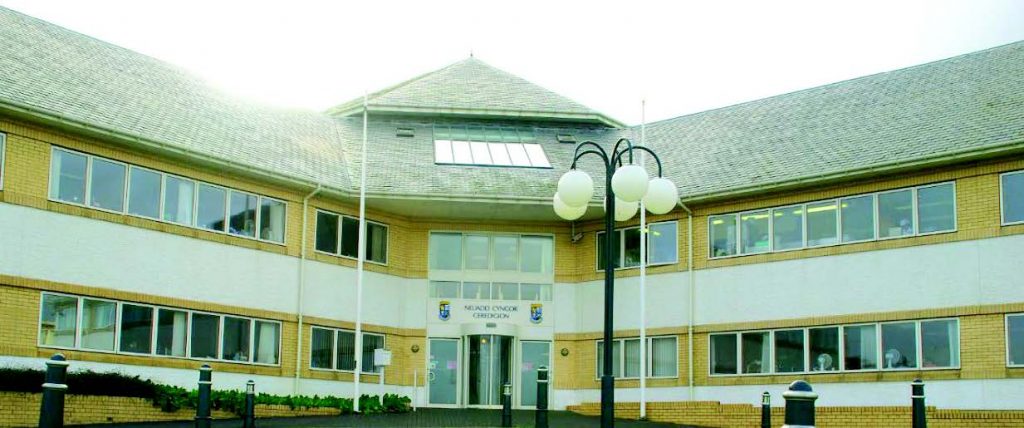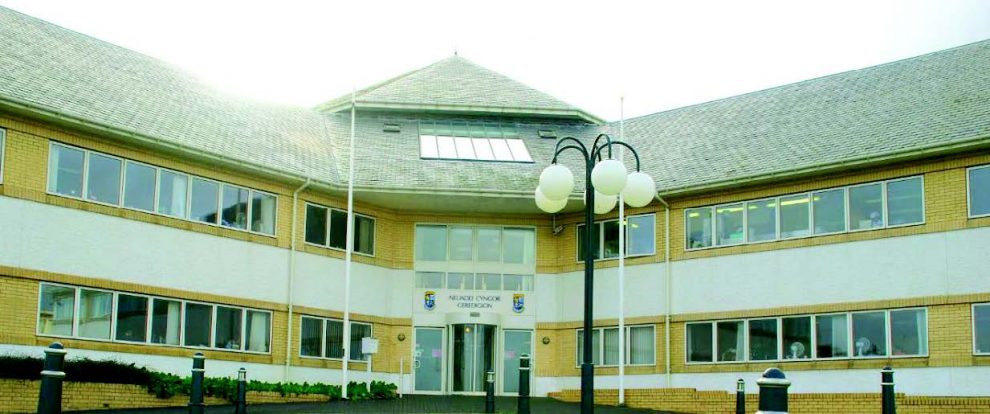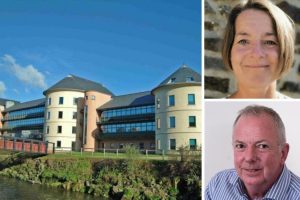
CHAOS is, perhaps, too strong a word to use about the debate on levying a Council Tax premium on Ceredigion’s second homes and a premium on long-term empty homes. There was, however, plenty of confusion and not a little farce as the debate took place in a more than half empty Chamber. Under new powers granted by the Welsh Government, authorities are able to levy a Premium without the negative financial implications inherent in the current powers. Specifically, the majority of the additional income arising from premiums being charged will be retained by the local authority with no negative effect on RSG.
First of all came the question of what the Cabinet had recommended. There had been questions raised about whether the vote on the recommendation made by Cabinet had been properly reached, with several Cabinet members having potential conflicts of interest. Deputy Leader Ray Quant MBE attempted manfully to explain the position. There was an issue with who could and couldn’t vote at Cabinet, Cllr Quant confirmed. However, members were zipping in and out of the meeting to establish whether or not they could vote, or speak, or do neither. There was a risk that the Cabinet would not have sufficient members present to reach a valid decision.
Rest assured, Cllr Quant told the few present, the Cabinet’s recommendation was made because one had to be made, not because of any enthusiasm for it one way or the other: it was all done in a rush. What Councillor Quant could not explain was why members had left it so ridiculously late to obtain clarity one way or the other. The legislation permitting councils to raise premiums on second homes and empty properties is not a new one; the Council was bound to vote on it before the end of the financial year; but on the underlying issue of why applications to the relevant committee had been left so late.
Cllr Quant was noticeably silent; neither did Cllr Quant explain why Cabinet did not adjourn for an hour and come back to the issue of the second and empty homes premium after the scrutiny meeting had made matters clear for those Cabinet members seeking a dispensation. Whatever the position, at the outset of the debate, there were sixteen voting members left in the Chamber, along with a number of those who could speak but not vote. Some of those who had been cleared to speak and vote left the Chamber before the debate even began. Perhaps after talking about the issue of BTB for the better part of an hour and half, their vocal cords had worn out together with their patience.
It took an intervention from the Monitoring Officer to establish that the few remaining members left in the Chamber represented sufficient numbers to permit a legal vote to be taken. The debate can best be described as peevish, with Chair Cllr Gill Hopley doing her level best to ensure both that councillors spoke in turn without interruption and that squabbling between councillors was kept to the minimum. At one point she suggested that sniping had reached a point that two councillors should leave the Chamber and carry on their argument elsewhere.
Not quite the same as offering them ‘outside’, but about as edifying. Rather more pertinent were Cllr Hopley’s observations about the precipitous decline in the permanent population of New Quay from around 1,000 to 700 in very few years. The Council Chair painted a worrying picture of the town as virtually empty in the winter months and suggesting it was in danger of becoming like a town in a western with tumble weed blowing along its streets. Several of those taking part in the debate were fearful of those who owned holiday homes setting themselves up as a business to avoid paying the Council anything and taking the benefit of business rates paid direct (at the moment) to Cardiff Bay; others were concerned about other methods of avoidance and skulduggery by those pesky holiday home owners with their undoubted contribution to the local authority.
In fact, it appeared that a significant number of those present favoured doing little or nothing to let go of nurse and finding something worse. Cllr Gethin James injected a muchneeded note of realism into the debate when he suggested that his fellow councillors should look at the number of empty homes in towns and villages across Ceredigion and the desperate need for that accommodation to be available to young, local families. The issue, Cllr James suggested was not only an economic one in terms of the effect on impoverished and impecunious holiday and second home owners, nor was it an issue affecting solely concerned with the Council’s revenue.
The issue, he implied, need to be seen in a broader social context. Cllr Elizabeth Evans proposed a reasoned amendment to the Cabinet recommendation for a 50% premium on second homes with a zero premium on long-term empty homes, suggesting that 25% on both would be the right level to start off, with the option of reviewing the effects of that after one year. She further suggested that the money raised from the charge on second homes only be returned to town and community councils to enable them to improve facilities locally, both for locals and for visitors.
That point was countered with an observation regarding empty houses owned by farmers and a request for clarification of what the words ‘longterm’ actually meant in the context of the policy. Fortunately, the answer to that question was found in the background papers delivered to members ahead of the meeting: the Welsh Government guidance defines a long-term empty property as ‘a dwelling which is both unoccupied and substantially unfurnished for a continuous period of at least one year’. After much heat but little light, the debate moved to its close. Councillor Elizabeth Evans’s suggestion that the premium levied on both second and empty homes at 25% was approved without much demur.
Cllr Evans’s motion that the revenue raised from second homes be apportioned to the localities in which it was raised – something of potential significant benefit to tourism areas such as, for example, Aberaeron – was altogether closer. Eight backed the motion, after a recount seven opposed it, with a solitary abstention. And, despite the pleas of the Chair to deal with item nine on the agenda while council was still quorate, members exited the Chamber.

















Add Comment